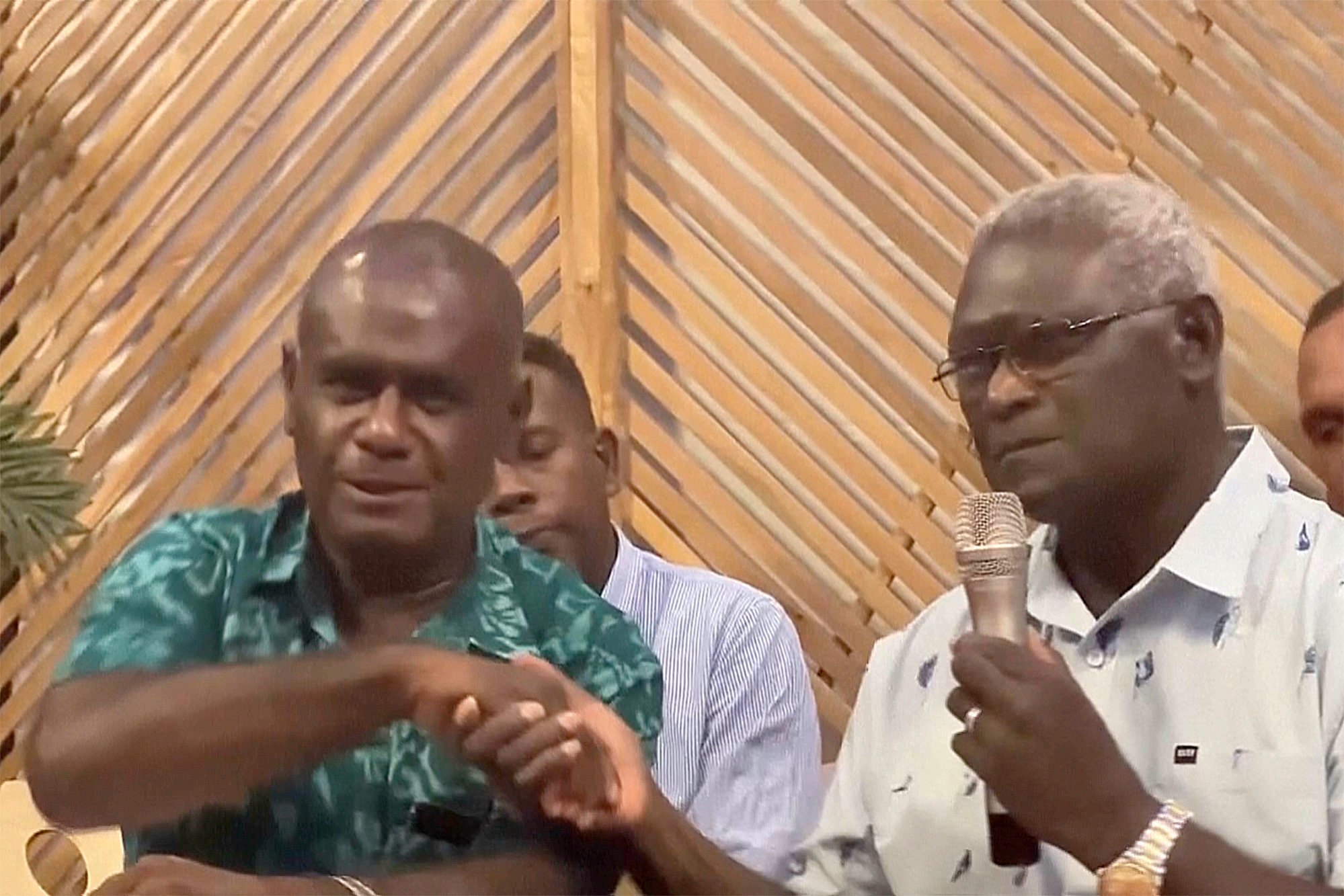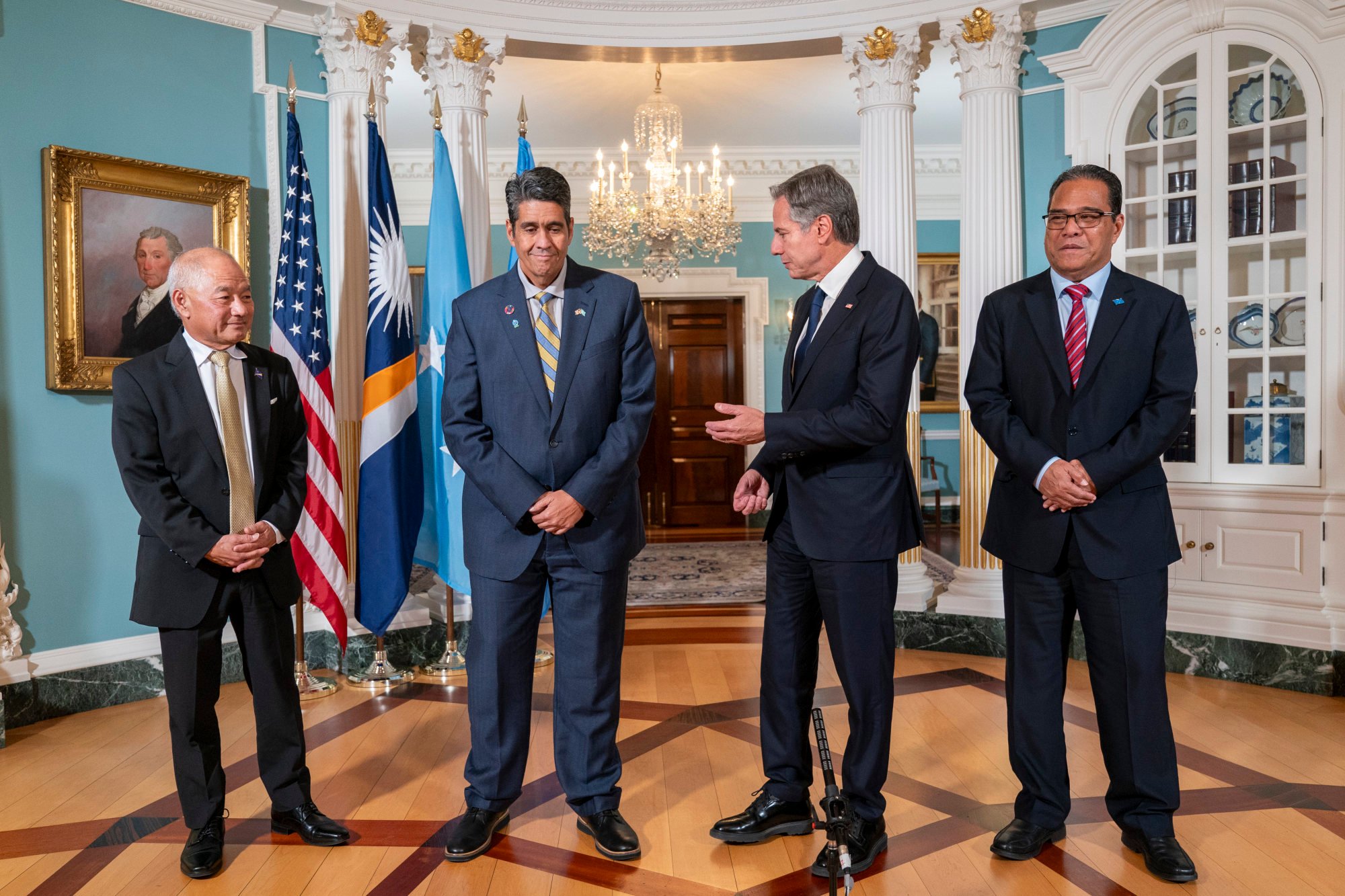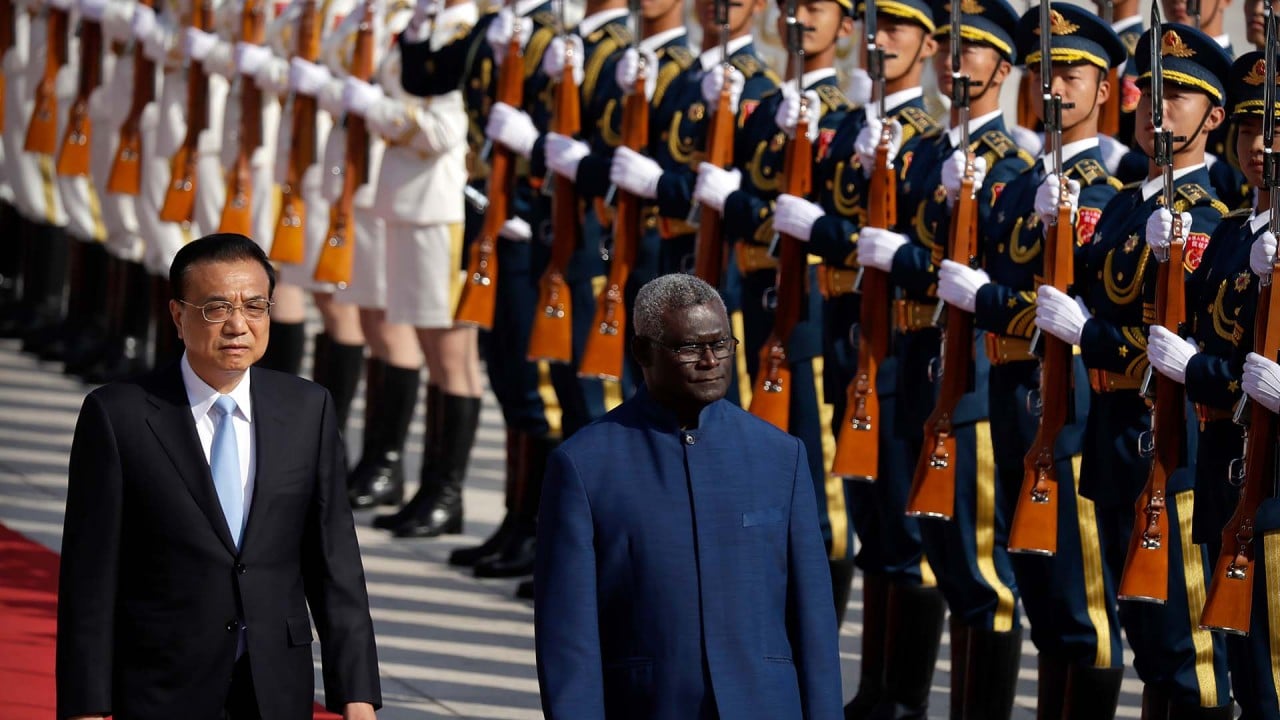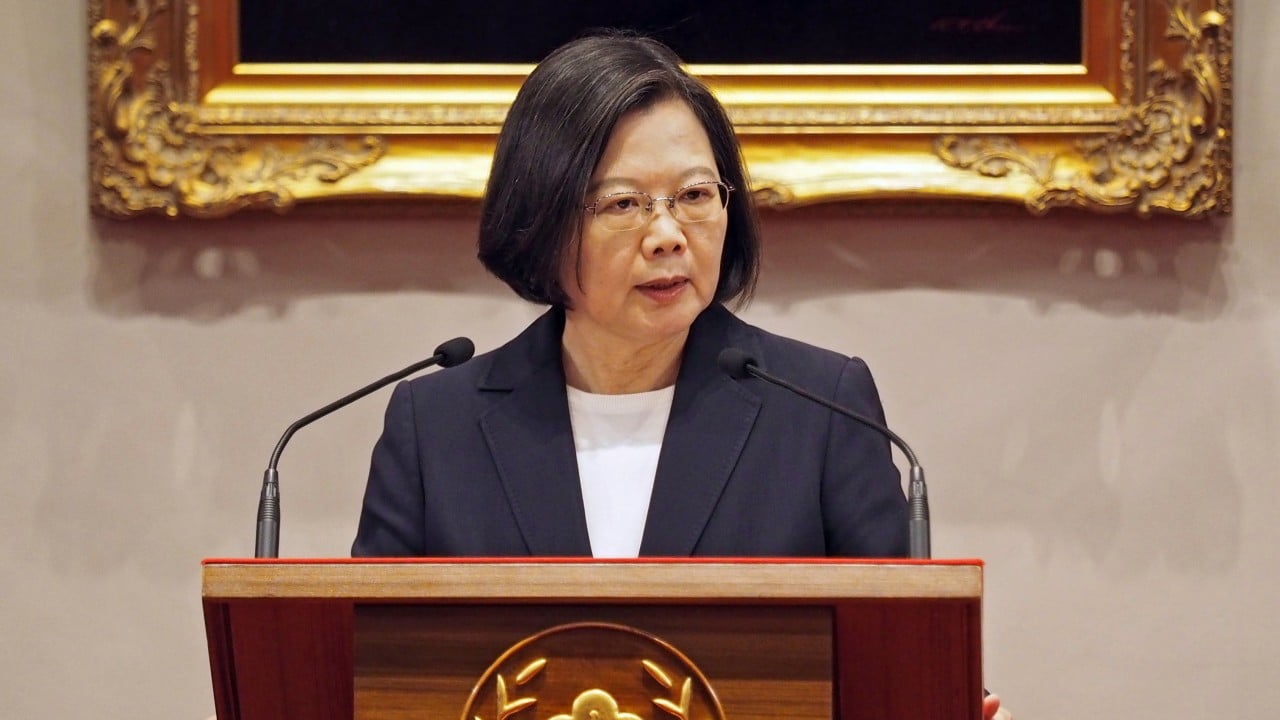
Solomon Islands ‘locks in’ China ties with another pro-Beijing leader as bilateral security pact still rankles
- New prime minister Jeremiah Manele is expected to apply a ‘lighter touch’ to ties with Beijing given the demand for greater transparency
- The rivalry between the US and China remains a concern for the Solomons as Washington steps up engagement in the Pacific region
On Thursday, the lawmakers picked Jeremiah Manele as their prime minister, who beat his opponent Matthew Wale in a 31-18 count. He succeeded Manasseh Sogavare, who was also seen as a staunch supporter of China.
Manele has said he will maintain the Solomons’ close ties with China, including honouring its secretive defence and security pact with Beijing, despite calls by the opposition for its revocation.
Opposition parties say that the government’s focus is misaligned, citing the example of the poorly neglected health services in the Solomons with many incidents of medicine running out even as Chinese companies are building stadiums in the capital Honiara and elsewhere.
Of the 700,000 Solomon Islands residents, over 80 per cent of them live outside Honiara and do not have access to basic services such as electricity, schools and clinics.
Sogavare, who had drawn his country closer to China in recent years, narrowly won his seat in the East Choiseul constituency in a vote on Wednesday.

In a surprise move, Sogavare chose not to enter the prime minister race after his party performed poorer than expected in the general election on April 17. Instead, Sogavare formed a new coalition government and endorsed Manele as his party’s prime minister candidate.
Jon Fraenkel, a comparative politics professor at the Victoria University of Wellington in New Zealand, told This Week in Asia that Manele – who served as foreign minister in Sogavare’s government – had indicated his intention to continue with his predecessor’s pro-China policy.
“The Solomon Islands government is likely to retain the security pact with China. Chinese police are likely to remain in Honiara,” Fraenkel said.
In 2022, the Solomons signed a secretive security agreement with Beijing that might have allowed the presence of Chinese troops in the country. Sogavare rejected suggestions that his government was giving Beijing a military foothold in the region.
Under Sogavare, Honiara switched diplomatic recognition from Taiwan to China in 2019. The widely unpopular move was one of the reasons that triggered riots in the Solomons in November 2021 and prompted calls for the prime minister’s resignation.
Alan Tidwell, director at the Center for Australian, New Zealand and Pacific Studies at Georgetown University, said Manele’s victory would “lock in” the Solomon Islands’ commitment to China.
For the country’s citizens, however, they will judge Manele on his ability to tackle unemployment, healthcare and transport as the previous administration failed to deliver on those needs, according to Tidwell.
“Manele’s government must deliver, because of these economic and social issues, Solomon Islands’ tensions will continue to simmer,” Tidwell said.
Fabrizio Bozzato, director of research at the Ocean Policy Research Institute of the Sasakawa Peace Foundation, said Manele would likely apply a “lighter touch” on his pro-China policies through diplomacy.
“However, concerns remain about the extent of Chinese involvement, particularly in security matters,” Bozzato said.
As China continues to expand its influence in the Solomons through aid, development, and security cooperation, Manele is likely to foster greater transparency and accountability in his dealings with Beijing, Bozzato added.

“The new government may face pressure from domestic constituents, opposition parties, and civil society groups to review or disclose the details of the security pact with China.”
Manele would likely adopt “a more cautious approach” towards Beijing due to concerns over sovereignty and transparency, Bozzato added.
In 2022, Honiara secured a US$66 million loan from China to finance the building of 161 mobile communication towers on the islands by Chinese telecommunications giant Huawei.
Under Manele, there was also likely to be less friction between the Solomons and Australia, with the new leader expected to uphold the “friends to all, enemies to none” policy, Bozzato said. Manele’s former role as foreign minister suggested that he would adopt “a more nuanced and savvy approach” to diplomatic issues, Bozzato added.
Australia is the Solomon Islands’ most important economic partner and largest development partner, but bilateral ties have been strained since Honiara struck the security pact with Beijing.
“Although the US and China may have their own interests in the region, the Pacific islanders, including Solomon islanders, do not see themselves as pro-China or pro-US.
“But they have seen both countries … as good bilateral partners and more importantly as key development partners,” Sakai said.

In March, the US provided US$7.1 billion in funding over 20 years to support the Compacts of Free Association (Cofa), an agreement on exclusive US military access to Palau, the Marshall Islands and the Federated States of Micronesia in exchange for economic support.
With the US stepping up its engagement with Pacific island nations, Manele is expected to realign relations between the Solomons and the superpower.
Washington did not have “an easy time” with Sogavare’s government, Tidwell said, citing the former prime minister’s “petulant” attitude in not taking the domestic steps necessary when the US offered to extend the presence of the Peace Corps, the US government agency of volunteers, in the Solomons.
“It is striking that he would turn up his nose at such a good-faith and popular offer from Washington.”



